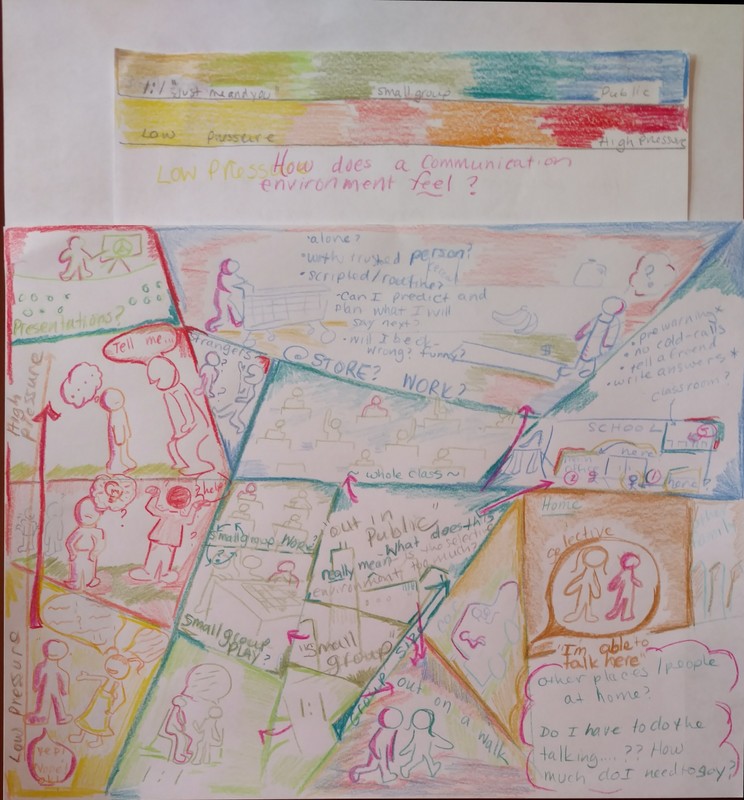Yesterday, one of my Doobs* sent a message saying she had a conference with SLPs for her work. She said they talked about how teachers should "identify students who may have speech and language needs and how to best support them in school" and particularly selective mutism, as they have a student at their school identified as selectively mute. Her students are ages 11-16 (some of the BEST communication years, in my opinion). I read from a 2010 article by Wang for some updated information- 38% of kids identified as selectively mute also have co-morbid communication disorders (e.g. language, fluency, PDD, etc.).
1 Comment
 This last week, I have been collecting all the research I can. I am looking at the science of executive function, I am participating in the experiment of a 10 year old friend (she's testing if children or adults have better short term memory for her science fair!), and meeting with the amazing professionals in the area who already provide a place for building executive function skills. So much of this work seems to be case-by-case, highly tailored to the individual. I believe that perspective is key, since it seems no two brains are alike! I would, though, like to work through some of the areas I think are deficient in society, causing us to be less patient, more dependent on immediate answers and unsatisfied with the grey areas. Society has an ever-changing language system- our vocabulary is based on the world around us, our reading levels, and our personal experiences. Organization is based in labelling: What is that? What group does it belong to? Describing aspects gives us categories, and can become more detailed and specific the larger our pile of items becomes. If we do not have a variety of words, we will label many things the same way: a cup. But when and if we continue to develop our world-experience, we encounter objects and feelings that are similar, but not quite the same. If we are brave we will seek out new words for similar objects: glass, cup, mug, stein, thermos, teacup, etc. Check out the picture below. If you looked at these items and said "Hey pass me that cup?" you might have a hard time getting the thing you wanted. Eventually you'd get there, but it might be inefficient, frustrating, and confusing. If you're trying to put away the dishes, you might think to put these all in the same place, without organization. That's okay, but doesn't it make sense to organize these by their function? By their material? By how regularly you use each one? I need to develop language-based domains for executive function activities. I need to find or determine myself the words that have to do with planning- sequencing words, spatial organization, prioritizing and value words. Other big concepts besides vocabulary and describing are initiation, outlining, editing, and completing. Cognitively I need to consider attention and memory that underlie executive function. And, of course, all of these domains are intertwined. We all have a lot to learn! Stay tuned, Katie Hi Everyone! Welcome to my website!
I'm working on building some of the infrastructure of Imagination Therapy, LLC, still (insurance provider, reserving different spaces, organizing activities for general groups, etc.) but I am ready to get this website out LIVE! I am still working on the editing and details- videos to come soon! I appreciate your visit and look forward to hearing from you all! You can contact me with questions or concerns from the CONTACT page, through comments on this blog, or email me at [email protected] I am excited to see where this new journey will take us! Stay tuned, Katie |
AuthorKatie Wilkie is a licensed Speech-Language Pathologist in Forest Park, Illinois. Archives
April 2024
Categories |


 RSS Feed
RSS Feed
